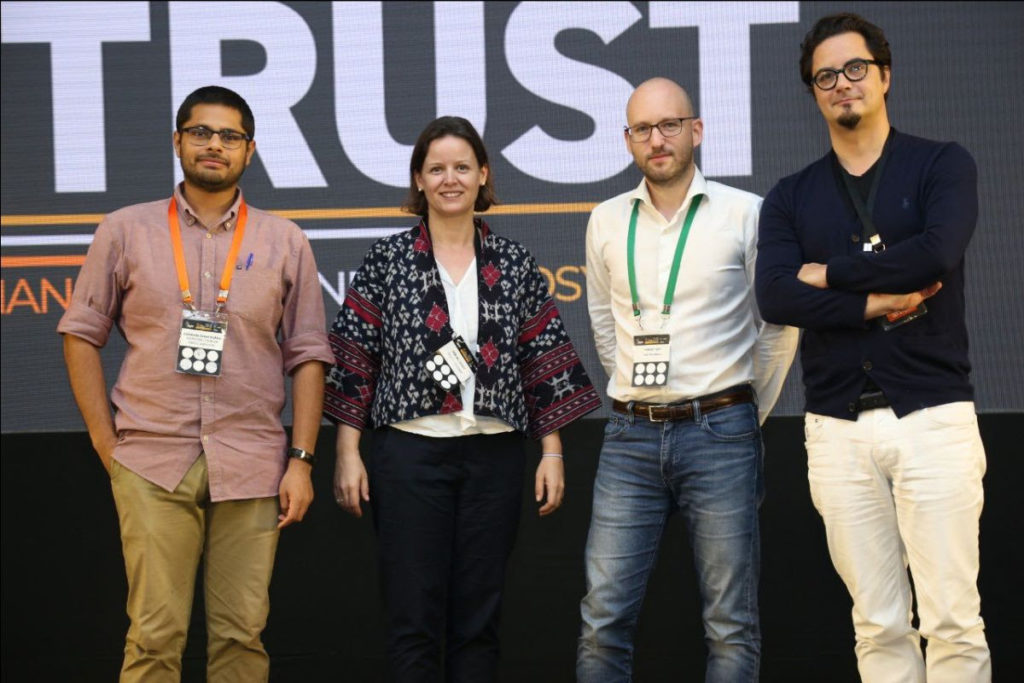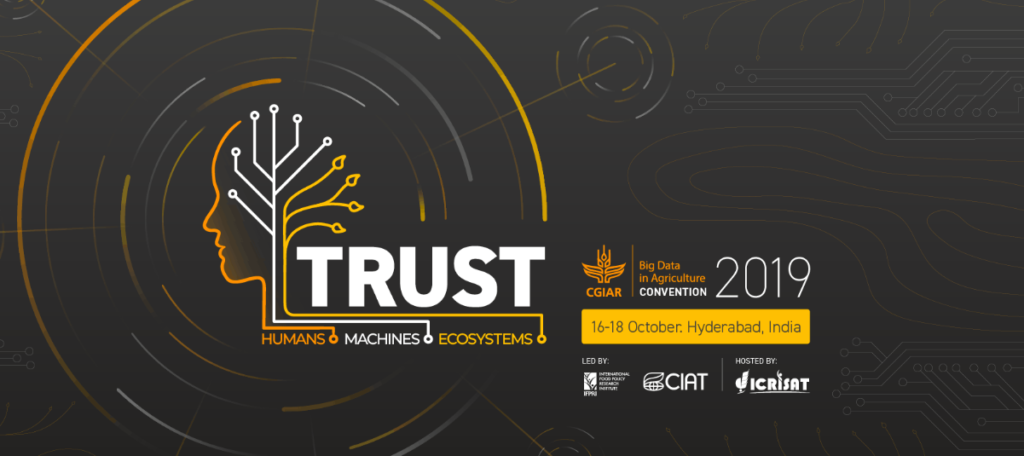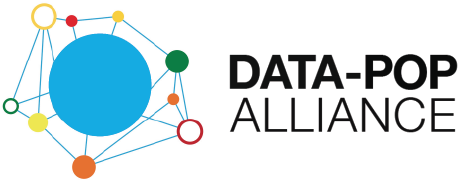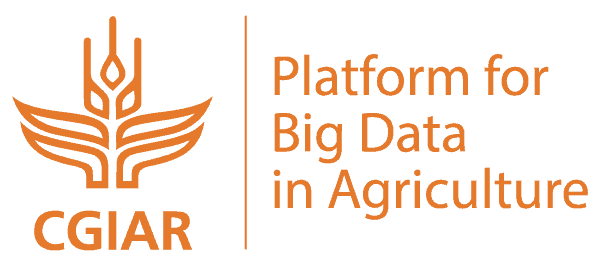
Simone Sala, second from the right, with the fellow panelists Dharani Dhar Burra, Derval Usher, and Fred Pivetta (Photo: ThoughtFolks Media)
On October 16-18 in Hyderabad, India, Data-Pop Alliance participated in the third annual Convention of the Platform for Big Data in Agriculture. The event represents the largest global gathering of the scientific community dedicated to the application of Big Data in the agriculture, food, and nutrition sector. The Convention attracted 500 researchers and practitioners, with over 60 speakers and industry experts contributing to 50 sessions over the course of three days.
The Un-Convention
Data-Pop Alliance participated in the “The Un-Convention” session, dedicated to exploring how novel big data sources and methods can support agricultural development. CGIAR and various partners have built the required expertise and knowledge, in terms of using ground-up (survey-based) and top-down (remote sensing/satellite-based) data and analytics, that can partly contribute to the revolution needed in data systems. The remaining gap from these data sources could potentially be filled by these non-conventional sources.
Particularly, the session focused on the use of unconventional data, i.e. the byproduct of data collection, and the related use-cases that have been developed so far. Examples of non-conventional data sources and related ecosystems that enabled a better understanding of agri-food systems were discussed. Data-Pop Alliance launched a discussion on the way to leverage private sensitive data without exposing them, safely, ethically, at scale – examining existing options such as the OPAL (for “Open Algorithms”) project. The OPAL project is a non-profit socio-technological innovation developed by a group of partners, which includes Data-Pop Alliance itself, MIT Media Lab, Imperial College London, Orange, and the World Economic Forum, that aims to serve as a trusted enabler to unlock the potential of data collected by private organizations. It does so by bringing the code to the data through open algorithms and safe and fair technological and governance systems.
The presentation, provided by Dr. Simone Sala, Data Pop-Alliance’s Senior Research Affiliate, is available here.
Participation in the Convention also provided the opportunity to discuss with key stakeholders from the CGIAR network about the current development of a scalable, innovative, hands-on online learning course with the Platform and TechChange that aims at equipping agriculture and food security researchers with the skills they need to leverage Big Data to advance their work. The course not only seeks to build and strengthen researchers’ capacities in the area of Big Data within the agri-food sector, but also to foster the creation of a larger online community of practice on this topic. The Convention allowed identifying key priorities to improve the sustainability of the agri-food system and its resilience, the effectiveness of policy development to do so, and the importance of improving monitoring, evaluation, and impact assessment of interventions in this sector.
Survey
A survey was launched to further collect information and feedback from researchers and potential partners who may be willing to match researchers taking the course in developing innovative hands-on projects. Interested researchers and partners can still contribute to the survey at this link.






![M002 - Feature Blog Post [WEB]](https://datapopalliance.org/wp-content/uploads/2025/10/M002-Feature-Blog-Post-WEB.png)





